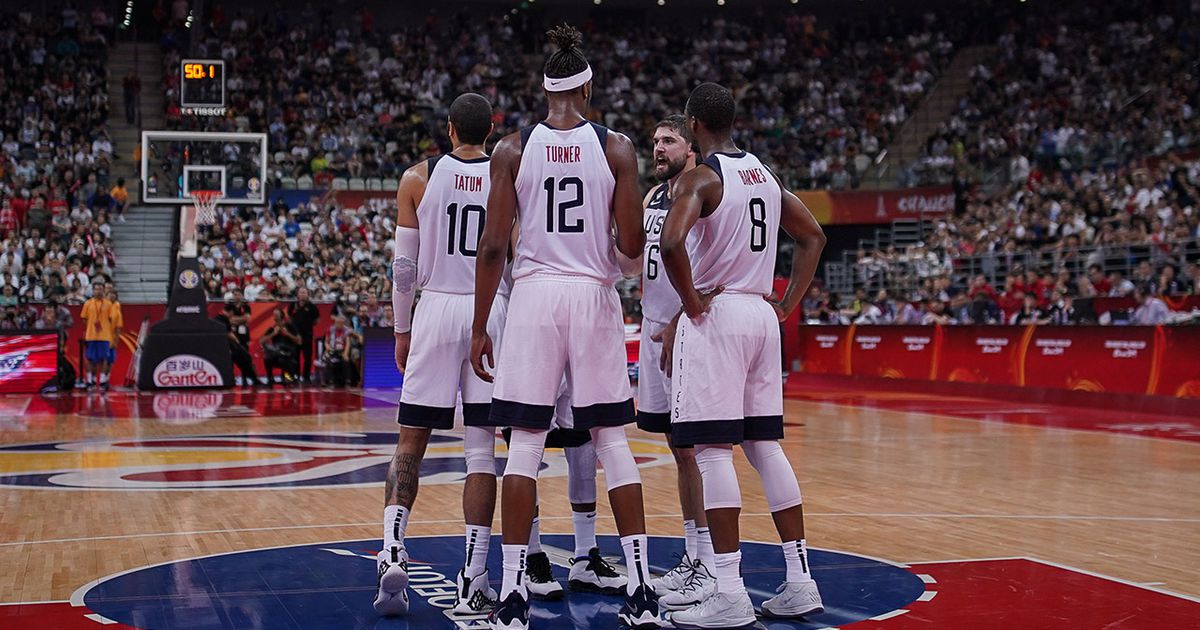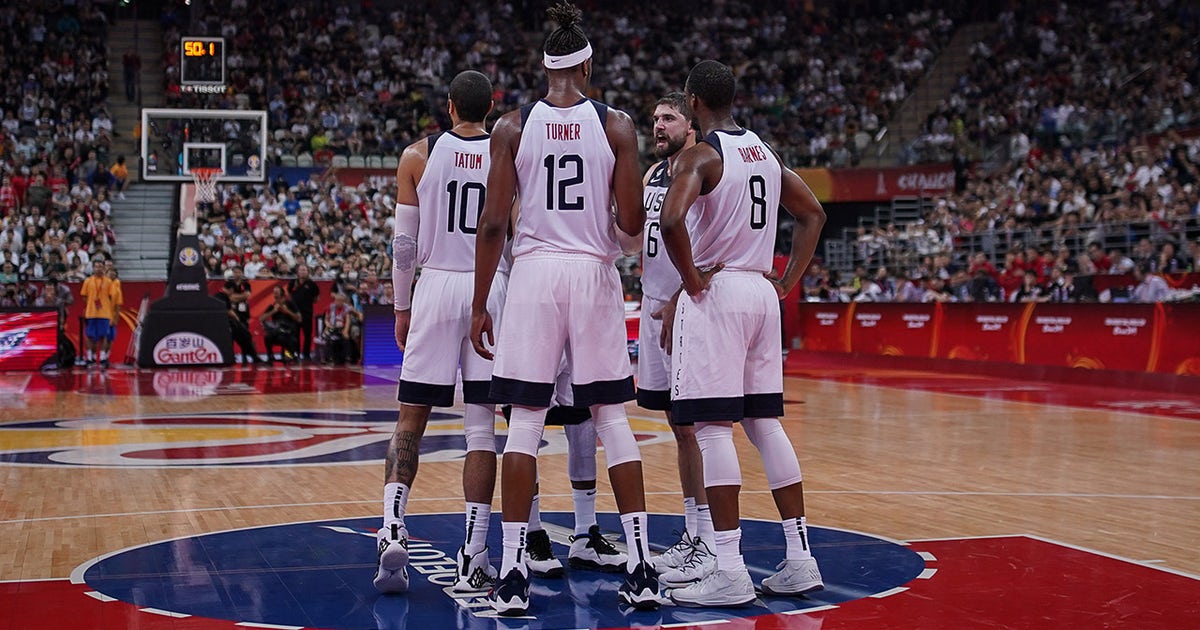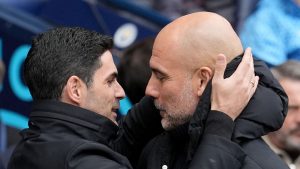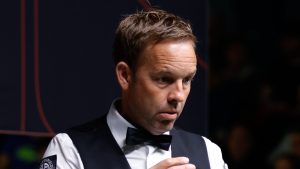Team USA’s near-loss to Turkey in the FIBA World Cup proves its vulnerability


It has been a heck of a long time since the United States lost a competitive game of international basketball, but that nearly all came to an end for Gregg Popovich and his national team at the FIBA World Cup on Tuesday.
Thirteen years have now passed since the Americans have lost a game that matters, all the way back to the 2006 World Championships — long enough that fans tend to forget that upsets against Team USA are even possible.
But indeed they are. The narrowest of margins separated the U.S. from Turkey in Shanghai on Tuesday, with Popovich’s crew securing an 83-82 victory in overtime. And for all the swagger in the current U.S. camp, it will have targets plastered across those American backs, and will have opponents desperate to take aim in every game in China over the next two weeks.
For every other team in the tournament, getting a victory over the hot favorites would not just be a career highlight, but something they will remember for the rest of their lives.
“It is a chance to send a message to the world,” Rolando Hourruitner told me via telephone late last week. Hourruitner is now a successful business entrepreneur, but in 2004 he was part of the Puerto Rico team that produced a monumental shock in its opening game of the Athens Olympics.
A U.S. team featuring a young LeBron James, Carmelo Anthony and Dwyane Wade — and captained by Tim Duncan — were no match for the cohesive and inspired Puerto Ricans, with Carlos Arroyo catching fire for 24 points and current head coach Eddie Casiano adding 18, as the underdogs sealed a comfortable 92-73 triumph.
Who’s bringing the ??
What a fight by @TBF ??! ?
Watch the best moments of the instant classic ? @usabasketball ??!#USAGotGame #FIBAWC #USATUR pic.twitter.com/zPfd69okGe
— Basketball World Cup (@FIBAWC) September 3, 2019
Hourruitiner contributed nine points and remembers most fondly the reception the team got in the Olympic dining hall the following morning.
“It was chaos in the village – and that was just at breakfast,” he said. “The other athletes were standing and clapping and shouting congratulations at us when we walked in. Maybe we didn’t realize how big it was until then. Think about it, all those athletes from around the world — it made them believe anything was possible.”
Hourruitiner also believes that other squads at this year’s World Cup can learn from his team’s experience and give the U.S. serious competition.
“The USA’s opponents must just remember that the game needs to be played. It sounds simple. But everyone has good days and bad days, and insecurities. Not everyone can play as a team, especially early in a tournament. The Americans still have the tools to win and maybe that will always be the case. But they have to play the minutes and make the buckets.”
The current U.S. squad lost to Australia in a warm-up game down under before the tournament, so Popovich is not taking anyone lightly. Pop himself has suffered disappointment with the national program, having been one of the final cuts for the 1972 Olympic team as a player, then serving as an assistant on the 6th-place 2002 World Championships team and for that 2004 Olympic squad.
Although as noted, it has been over a decade since any major mishaps have befallen Team USA. After the Puerto Rico game in Athens, a group stage defeat to Lithuania and a semifinal final loss to Argentina followed. Two years later, the U.S. could only manage bronze at the 2006 World Championships. Since then, however, it has been one-way traffic with a red, white and blue hue – three Olympic gold medals and two world titles.
“When you have an opportunity to do this for your country, it is impossible to say no,” Popovich told reporters. “I love being part of it.”
“One of the best games I’ve ever been a part of” – @Original_Turner
“My adrenaline is still pumping” – Joe Harris#USAGotGame #FIBAWC pic.twitter.com/DPCijGDRLW
— NBA (@NBA) September 3, 2019
The Americans will now face Japan in the final pool game before entering another pool round that will determine the quarterfinal bracket.
Popovich is in charge of a group that boasts the youth of Jayson Tatum, Donovan Mitchell and Myles Turner, and features Kemba Walker as its biggest NBA star. In terms of pure talent, it is heads and shoulders above the international pack.
But it is not invincible. Hourruitiner highlighted how important it is for teams wishing to beat the U.S. to start strong in the tournament, just as he and his colleagues did in 2004. National teams who play together regularly – the Puerto Rico squad in Athens was largely made up of players from the Cangrejeros de Santurce club – may have the best shot.
Puerto Rico’s victory over the star-studded Americans remains one of the most extraordinary results in international basketball history. It wasn’t even close and Hourruitiner said he felt even before halftime that his team had their illustrious opponents beaten. Puerto Rico fell just short of a medal, losing to Italy in the quarterfinal, but Hourruitiner’s story came with the ultimate silver lining – he met his wife, a former synchronized swimmer, at the Games.
And now, well over a decade later, he still gets asked about that game, every day.
“People in Puerto Rico don’t forget. They will never forget it,” he said. “So, of course, I don’t forget either.”
Basketball’s World Cup doesn’t always get the attention it should in the States, and as a result the Team USA squads that win don’t always receive appropriate credit. That’s not entirely fair.
This U.S. squad, like every other, has more natural ability than its opponents. But in every game it will encounter the same obstacle: it will have to overcome rivals determined to make the most of what could become the game of their lives.
KEMBAAAAAA! ?@KembaWalker with the @TISSOT Buzzer Beater to close out the 3QT of @usabasketball ?? ? @TBF ??!#Thisisyourtime #TissotBuzzerBeater #FIBAWC #USATUR pic.twitter.com/bxceMkTH8T
— Basketball World Cup (@FIBAWC) September 3, 2019





